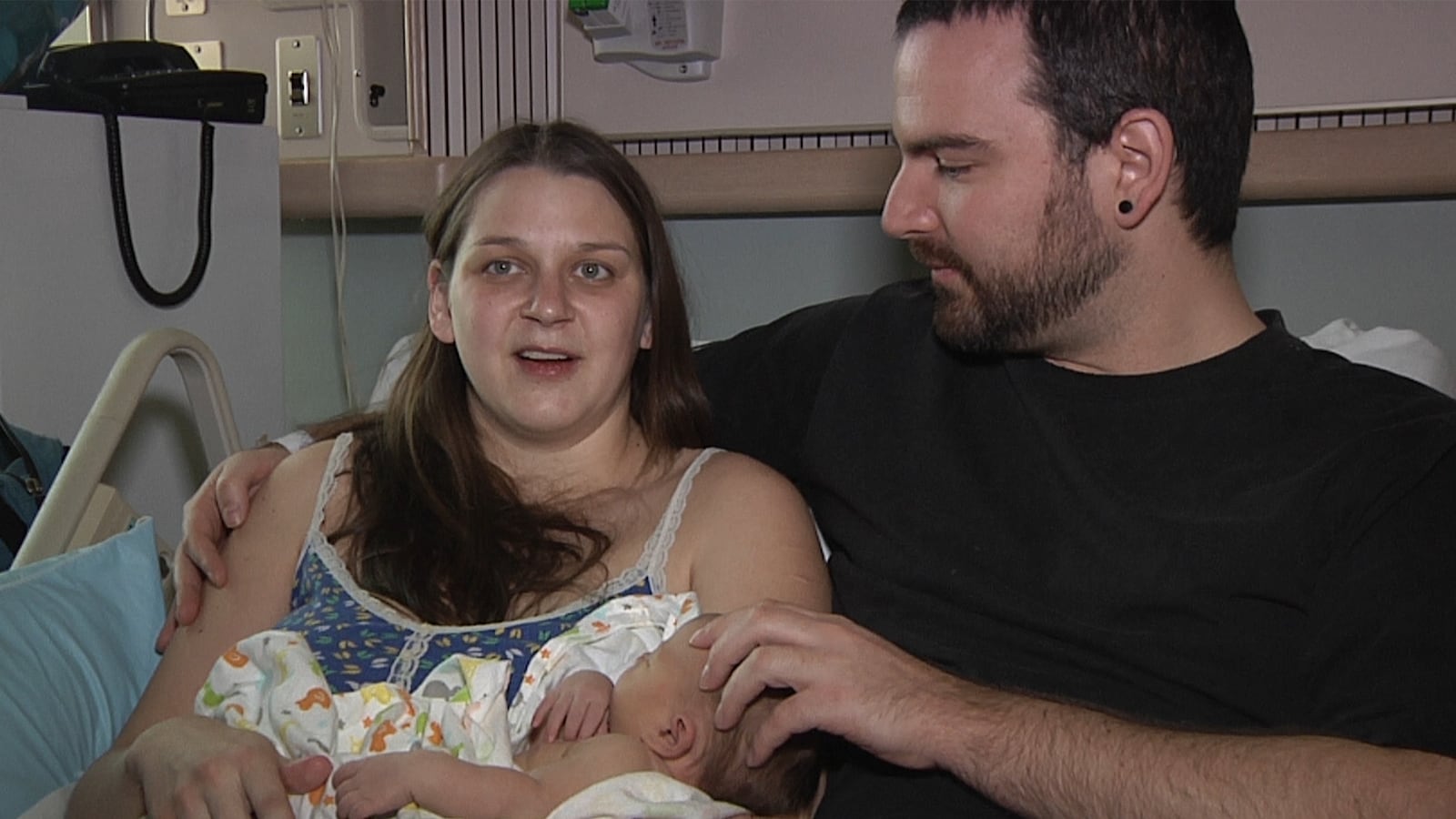I am a birth feminist. Scoff if you like and call me a radical. But indulge me by imagining this scenario:
You’re having a healthy pregnancy. You have a doctor who you like well enough. You assume that because women all over the world are doing it, you too can deliver a healthy baby and will instantly fall in love with her. No problem! You don’t need a doula because you are strong and determined.
Except then your due date comes and goes. And your doctor starts to talk about induction. And at a certain number of days past your due date, he has you check into the hospital and gives you drugs that stimulate your uterus into contractions.
Because the contractions are stronger than they would naturally be, you make it a few hours before asking for that epidural the nurses keep telling you to get. You’re checked repeatedly for dilation, but stay at 3cms. You are hungry—it’s been almost 18 hours since you last had food, even though your body is working hard. Nurses keep coming in to adjust the fetal heart rate monitor.
It suddenly feels very loud and very bright, and you are growing weary.
After 24 hours in the hospital, the doctor comes in and tells you the baby is technically fine “for now”—but the labor has been going on “a long time.” He begins to talk about how you may be “failing to progress,” that your baby is probably “too big to fit,” and that you should really think about a C-section. “Because,” he says softly while stroking your leg, “you won’t really care how your baby comes out once she’s in your arms.”
You agonize because this is not the birth you expected, but maybe the doctor is right, and maybe the baby isn’t coming on her own. Or maybe you’re just exhausted and starving. So you relent. It’s about 10:30 at night, one of the most common times for C-sections—something cynics say could have something to do with docs wanting to be done for the day.
They wheel you on a gurney into the OR. You are naked, spread eagle, cold and numb, convulsing from the anesthesia, listening to the doctors talk about their weekend getaways as they slice you open and remove your baby from your womb. You get a quick glance over the curtain at your child before she’s whisked away to be suctioned, weighed, and measured.
Eventually you will be able to kiss her face.
Eventually you will be able to go home from the hospital.
Eventually you will feel well enough to be able to pick her up and change her diaper.
Eventually you will feel a deep connection with your baby.
Eventually you will stop crying every day without really knowing why.
Eventually.
This was my experience in November 2009, when my doctor convinced me to have an unnecessary C-section. This was me choosing not to choose.
And this is why I became a birth feminist.
So what does this mean? Birth feminists aren’t anti-C-section, or anti-hospital, or anti-doctors. We are not people who don’t care about “a healthy baby”—every mom wants this!
Birth feminists simply believe in a woman’s right to make empowered choices about her birth experience. We believe a Mom should have evidence-based information about all her birth options, which all too often does not happen. We believe a Mom should be supported through her decision-making process and into the birth experience itself, which all too often does not happen. And we believe every Mom is entitled to her own choice, without judgment, whatever it may be, which all too often does not happen.
My choice, when I got pregnant a second time, was to have a Vaginal Birth After Cesarean (VBAC). It was an empowered choice because I looked at medial evidence and evaluated the risks I would be incurring with not just the VBAC but also a repeat C-section. It was an empowered choice because I got my operation notes from the first C-section and had them evaluated by medical professionals, who helped me understand that my C-section was probably unnecessary and that I was a prime VBAC candidate. It was an empowered choice because I switched birth teams to the incredible midwives at George Washington University Hospital and committed myself to a healthier new diet and exercise regimen recommended by them. It was an empowered choice because I now had providers that would let my labor commence and proceed naturally—the most important factor in improving birth outcomes for Moms and babies, according to the World Health Organization. And it was an empowered choice because I picked a powerhouse doula who I knew would be my advocate and protect my choices during the birth.

When the time came, in February 2012, I labored for four days with no medicine. I have never worked harder or experienced a more unbelievable thrill than meeting my son that day. I felt relief, pride, strength, and elation. I felt empowered by the birth, and it changed my life for the better. My post-partum experience was amazingly positive—a sharp contrast with my first post-partum experience. And to this day, I look at my middle child with wonder and appreciation for the experience we had together—the time I gave him his life, and he gave me mine back.
In June 2014, after 18 hours of labor, I had a second natural VBAC, with the same incredible midwives. This time, I chose to catch my own son, to pull him from my body and welcome him with my own hands, lovingly and happily. The birth was not as arduous as my first VBAC, but was just as rewarding and empowering. I relished the confidence I felt in my body, and I again loved my birth experience. The process was so transformative that I agreed to share the experience with my friend, fellow VBAC mom, and documentary filmmaker Brigid Maher to include in her upcoming film The Mama Sherpas, which dives into what role hospital-based midwifery programs can play in improving U.S. birth outcomes.
So if you are pregnant, or someone you know is pregnant, it’s really simple. Whether you think you’re a birth feminist or not, know this: your birth experience has the potential to shape you as a human being in enormous ways. And you are in the driver’s seat. It is your body and your experience. Ask questions. Do your research. Hire a doula. Write a birth plan that helps you define what is important to you. Approach your pregnancy with strategic focus. Surround yourself with a birth team that respects your process. Be hopeful. Know that you have a right to have a right. Birth is an amazing opportunity. Choose wisely.
Mariah Sixkiller lives in Washington, D.C., with her family. She’s a former longtime Capitol Hill staffer turned VBAC advocate, and she is launching Build a Better Birth later this year.
The Mama Sherpas will be available on iTunes, digital VOD and themamasherpas.com as well as DVD on July 21. For more information please visit www.themamasherpas.com.






